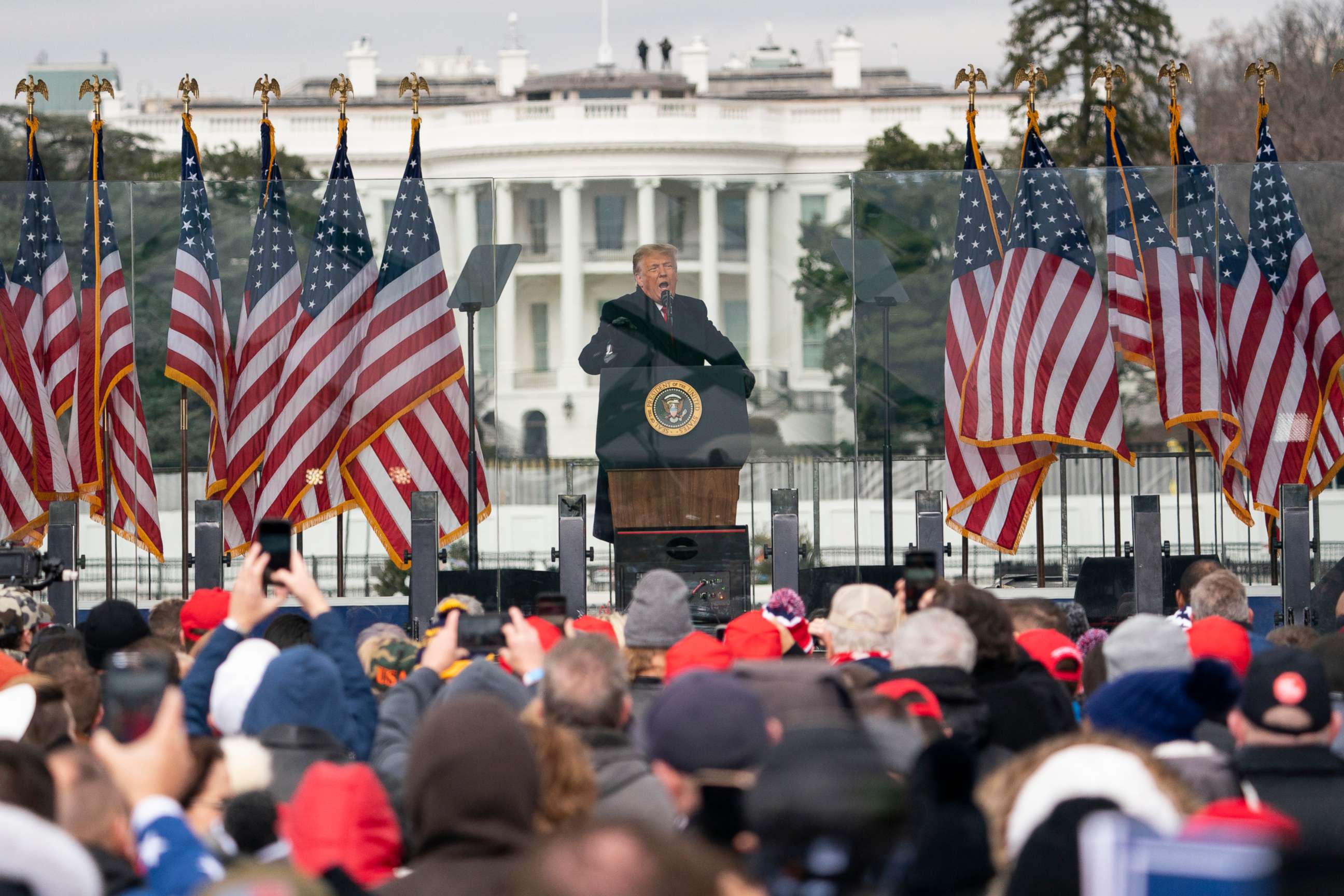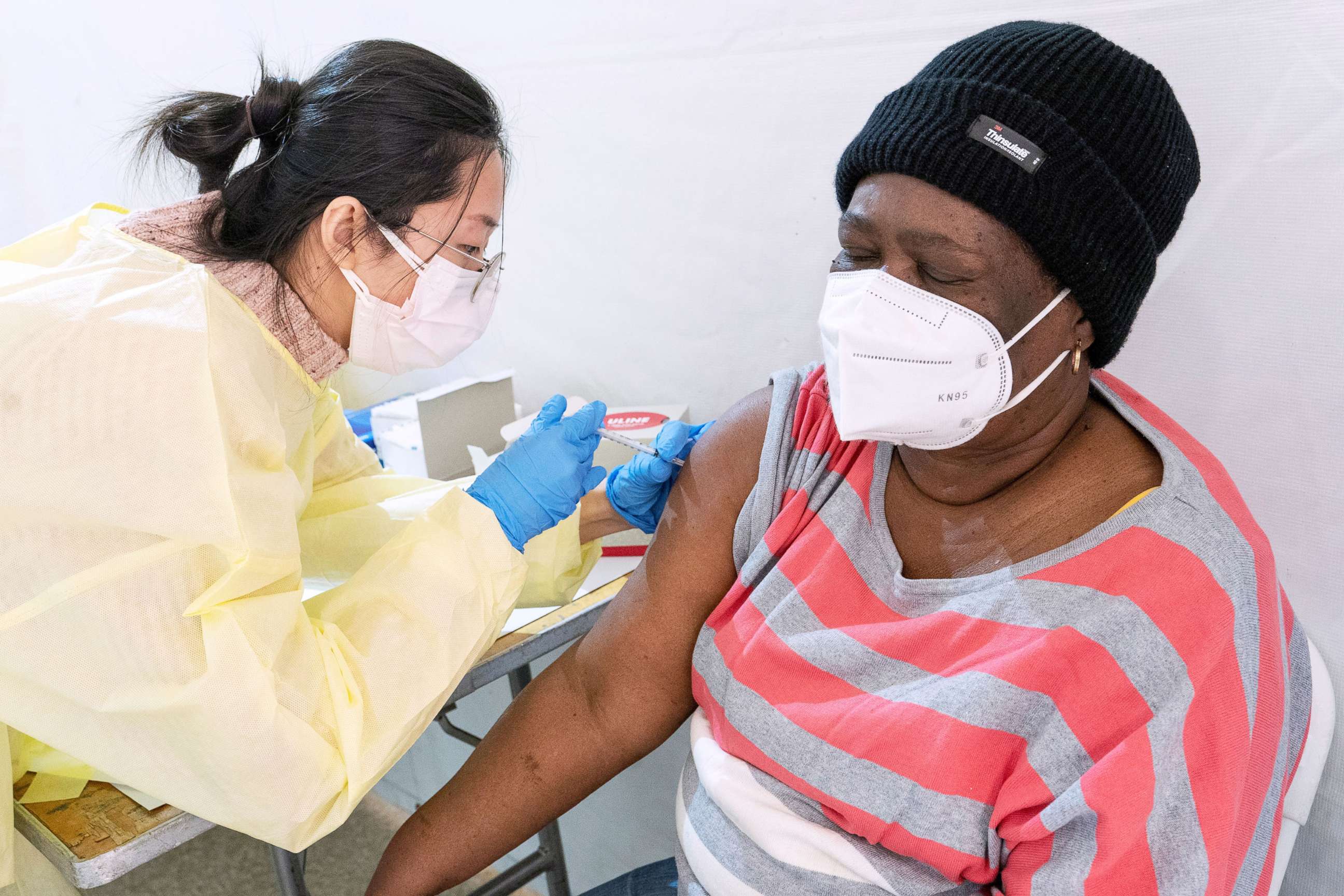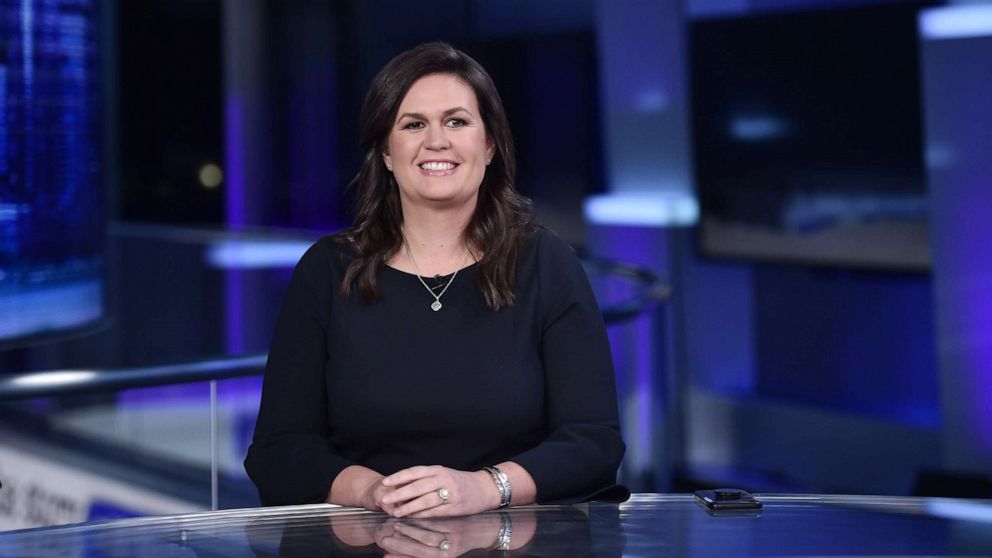Amid absence, Trump sets up new intra-party battles for GOP: The Note
Even when former President Donald Trump is silent, Trumpism is not
The TAKE with Rick Klein
Even when former President Donald Trump is silent, Trumpism most assuredly is not.
In just the six days since Trump decamped for Florida, his former White House press secretary announced her candidacy for governor of Arkansas; the Arizona Republican Party formally censured the GOP governor, a former GOP senator and another former senator's widow; primary challengers emerged to take on Republicans who supported impeachment; and a moderate Republican from Ohio announced his retirement from the Senate, opening a door for one or more Trump loyalists.
It could be read as a statement on this moment that Sarah Huckabee Sanders appears more optimistic about the future in the Republican Party than Sen. Rob Portman. Even that, though, assumes that Trump-aligned forces operate inside the GOP, instead of splintering into a separate political movement.

As it is, Senate Republicans are staring down final votes on Trump's impeachment the week after next, while President Joe Biden tries to peel support away for his opening legislative bids. On the other side of those votes looms a brutal 2022 map that could be a proving ground for Trump loyalty in primaries.
There will be open GOP-held seats in Pennsylvania, North Carolina and now Ohio, and defense to play in Florida and Wisconsin. The party's two top pick-up opportunities are likely to be Arizona and Georgia -- both of which Trump lost and where he proceeded to trash top GOP elected leadership in false claims about a rigged election.
All of those races could and probably will attract Trump-aligned candidates. Two of them might feature people with the last name "Trump."
Trump's brand was built on disruption and the force of his own personality. Even through a quiet period -- one that few think will last -- that disruption is set to continue into at least 2021 and 2022.
The RUNDOWN with Alisa Wiersema
In many ways, the first full week of the Biden White House kicked off in a manner expected of an administration composed of policy wonks -- there was a flurry of executive orders, a series of press briefings and several experts offering sobering predictions regarding the ongoing coronavirus pandemic.
"We're going to see somewhere between a total of 600,000 and 660,000 deaths before we begin to turn the corner in a major way," Biden said on Monday during his first press conference since taking office.

When asked about the existing vaccination timeline, Biden told reporters he expects to raise the rate of vaccinations to 1.5 million a day from the current rate of 1 million per day and said the general population should be able to get vaccinated by "the spring." Still, Biden warned that Americans would likely continue to deal with the pandemic in broader terms through the summer and into the early fall.
Biden's vaccine adviser, Dr. David Kessler, appeared to raise a warning of his own in an interview earlier on Monday. According to Kessler, it will take "months to have enough supply" of a coronavirus vaccine for all Americans who want to get vaccinated.
"I think we can be out of this, but we're not going to have everyone vaccinated in April, in May, right? Just not gonna happen -- we got to get over 65, essential workers. I think this is going to take us into the fall. We got to get there before next winter," Kessler said.
In an interview with ABC News' Linsey Davis, Dr. Anthony Fauci clarified the two timelines noted by Biden and Kessler. According to the government's top infectious-disease expert's estimate, the vaccine will be available to the general public at the beginning of April, but it would take "several months" until a "herd immunity level" could be achieved.
The TIP with Kendall Karson
Sanders' bid for Arkansas governor was a long-anticipated move that injects Trump's brand of politics into a crowded primary, in a solidly red state at a time when his tenure and legacy are marred by division and violence.
In her announcement video, the signs of the former president were already there, as she underscored the need for "law and order" against the "radical left's solution" of "government control and censorship." After formally endorsing her, the overt presence of Trump in Sanders' campaign will likely be beneficial in a state he won by nearly 30 points and reflects her bet that Arkansas Republican voters are in no way ready to abandon him, or at least Trumpism.

But even with a dynastic name and the influence that comes with being close to Trump, her ascension to the governor's mansion is not yet a sure thing.
In the race to replace term-limited Republican Gov. Asa Hutchinson, Sanders' entry sets up what is expected to be a contentious, and Trump-centric, primary against at least two other high-profile Republicans in the state: Lt. Gov. Tim Griffin, an establishment figure who once worked for former President George W. Bush, and Attorney General Leslie Rutledge, who supported an unsuccessful lawsuit brought by the state of Texas challenging the 2020 election results in a slate of battleground states -- a last-ditch effort to swing the election in Trump's favor.
THE PLAYLIST
ABC News' "Start Here" podcast. Tuesday morning's episode features ABC News Medical Unit coordinating producer Sony Salzman, who examines how vaccine manufacturers are responding to more transmissible COVID-19 variants. Then, ABC News' Sasha Pezenik explains how the well connected and wealthy are trying to get special access to the vaccine. And ABC News Senior Investigative reporter Aaron Katerksy tells us about a Department of Justice watchdog's investigation into reported election pressure from President Donald Trump. http://apple.co/2HPocUL
FiveThirtyEight's Politics Podcast. Amelia Thomson-DeVeaux and Maggie Koerth join the FiveThirtyEight Politics podcast to discuss their reporting on partisan discord and violence in the United States. They discuss the factors that have contributed to Americans not just disagreeing with each other on policy, but actually seeing each other as "evil." The crew also looks at the dynamics in Congress that will determine whether or not President Joe Biden can pass his agenda. https://53eig.ht/2Yhpv4g
WHAT YOU NEED TO KNOW TODAY
Download the ABC News app and select "The Note" as an item of interest to receive the day's sharpest political analysis.
The Note is a daily ABC News feature that highlights the day's top stories in politics. Please check back tomorrow for the latest.



